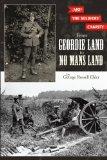FROM GEORDIE LAND TO NO MANS LAND

BOOK WAS NOT WRITTEN BY ELDER. Was written by descendents; published 2011, Authorhouse. After the war, George made several unsuccessful attempts to have his diaries published and shortly before his death he passed them to Mabel his youngest daughter. Several years later other members of his family including his granddaughters deciphered, edited and arranged with Authorhouse to have them finally published. George's wish was to dedicate the book to his pal Teddy Watmough who was tragically killed in action the day after George went on leave in 1918.
--------------
In writing his `one and only' book, George Elder, a proud Geordie, detailed many of his experiences endured whilst serving in the British Army during World War 1. (Geordie is a regional nickname for a person from the Tyneside region of northeast England.) Many of his tales would not have been appreciated by his peers, but they actually happened and would have been recognised by the common soldier.
From Geordie Land to No Mans Land was written to inform his family, friends and anyone buying his book of the real life events that occurred. Elder tells about how he, an ordinary man, survived four years on the frontline experiencing the horrors of war that most of us could not imagine, enduring many privations such as mud, cold, hunger, thirst and fear of imminent death all around him.
George maintained his spirit by forming a close bond with his fellow Geordies, even refusing to be transferred to Hospital in case he could not return to his original unit. His description of the intensity of shell fire that we have seen in pictures of the battlefields of Flanders and the Somme bring to life how men endured the unendurable, how men lived as animals, how men coped with all the privations of the battlefield.
What he doesn't describe is how he coped with life immediately after the war, when he returned to civilian life. His post-war (NOTEBOOKS?) diary did detail the problems his family faced with sickness and lack of money but, as we are now aware of the post- Falklands and Gulf Wars the physiological effects on men are stories in themselves. Coping with ordinary life after four years of war living on the edge in fear of imminent death would have been a major issue for George and his family.
--------------
Elder died in ???????
Elder died in


